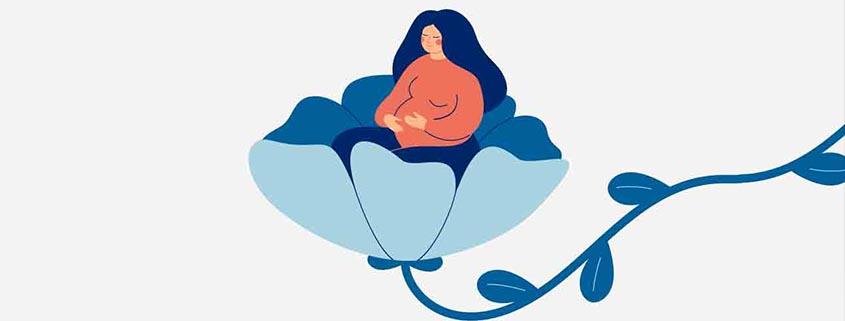Precautions During Pregnancy: Third Trimester
The third trimester of pregnancy is the last stage before you get to meet your little one. It’s possibly the most exciting time, but it also comes with added precautions and safety tips – nothing more restrictive than the usual. However, it is important to monitor and watch things at this stage and that’s why, we at Prega News, have drawn up the perfect list of precautions to be taken during the third trimester of pregnancy.
What is the third trimester?
The last leg of the pregnancy or Week 27 to end of pregnancy is termed as the third trimester of pregnancy. For some women this can be week 36, while for others it may be less or more.
What are the symptoms of the third semester of pregnancy?
During the third trimester of pregnancy, you may notice the following symptoms:
- Itching during the third trimester of pregnancy, caused by the stretching of the skin.
- Burning sensation in stomach during the third trimester of pregnancy, due to the growing uterus and indigestion.
- Weight gain in the third trimester of pregnancy is the most common symptom as your baby is getting ready for birth.
- Constipation or loose motions in the third trimester of pregnancy is also very common and can be treated with a proper diet. If it continues, do consult your doctor.
- Feeling increased fatigue during the third trimester of pregnancy is caused by the body growing to accommodate the baby.
- Vomiting during the third trimester of pregnancy is not as common but occurs in some women and can be treated with herbal teas and medication prescribed by doctors.
What are the precautions during the third trimester of pregnancy that should be followed?
- Keeping a check on your blood pressure & sugar levels
- Restricting strenuous exercise and intense activities
- Avoid flying or long journeys
- Avoid sleeping on your back
- Monitor your baby’s activity levels
- Avoid certain sex positions
- Keep a check on cramps and back pain
- Make sure you can work safely
- Sign up for prenatal classes
- Have a birth plan ready
Keeping a check on your blood pressure & sugar levels
Many women in the last trimester, experience raised blood pressure levels and develop gestational diabetes. While these usually subside after birth of the baby, it’s good to keep them monitored and any fluctuation or discomfort should be reported to your doctor.
Restricting strenuous exercise and intense activities
At this stage, your body’s working overtime to grow and nurture the baby. This is also the time when your skin and belly stretch the most thus increasing pressure on your legs and other parts. Hence, strenuous exercises and high intensity workouts should be avoided at this time, to protect your body and your baby.
Avoid flying or long journeys
It is advisable to avoid flying or long durations of travel at this stage to avoid stressing the baby. As your baby is preparing for birth, excess stress and pressure can cause preterm labour and other complications.
Avoid sleeping on your back
In the later stages, women usually find it difficult to sleep on the back and this should also be avoided. This position puts pressure on the uterus and can be uncomfortable for both mother and child. Sleeping on your left is advisable at this stage.
Monitor your baby’s activity levels
Your baby is very active at this stage and it is an indication of the baby’s health. Monitor your baby’s kicks and movements and consult a doctor if there’s a drop in the movement as this could mean that the baby is stressed.
Avoid certain sex positions
Although sex during pregnancy is generally considered safe, you may want to avoid certain positions. Lying on your back is not a good idea and any position that seems uncomfortable or puts too much pressure should be avoided. A good way to go about it is by doing what the woman feels comfortable with – even if it means not doing it at times.
Keep a check on cramps and back pain
Cramps and back pain can be an indication of preterm labour and should be accordingly updated with your doctor. This can also be caused by Braxton Hicks contractions and shouldn’t be ignored. Other symptoms may include vaginal discharge and tightening or simply the frequent urge to pee.
Make sure you can work safely
Most women can safely work up to their due date unless otherwise advised by the doctor. Just ensure that your workplace is comfortable and safe – this includes avoiding spaces that are risky and expose you to dangerous chemicals etc.
Sign up for prenatal classes
If you haven’t already, it’s time to sign up with prenatal classes and exercises that educate and prepare you for the next step. From birthing exercises to baby care – these can include a lot of things.
Have a birth plan ready
Whether you choose to deliver at a birthing centre or opt for a normal delivery / C-section at a hospital, make sure a solid plan is in place. From medical insurance and hospital to doctor and feeding – having everything planned out will greatly help. While you’re at it, do remember to pack a hospital bag for the D-day.
Frequently Asked Questions
- What should I avoid during the third trimester?
Raw foods such as fish etc., strenuous exercises, sleeping on the back, airplane travel and other such activities should be avoided during this time.
- What should I be doing in my third trimester?
Apart from following a healthy pregnancy diet, make sure you do light exercises, sign up for prenatal classes and follow all precautions of the third trimester of pregnancy.
- How can I make my third trimester more comfortable?
Eating right, doing light exercises, sleeping on the side and breathing exercises are some of the ways to enjoy a comfortable third trimester.
- What are the symptoms of third trimester pregnancy?
Dizziness, swollen ankles, fatigue, frequent urination etc. are some of the many symptoms of the third trimester of pregnancy.
Disclaimer:This blog solely intended for the educational/informational/awareness purposes and is not a substitute for any professional medical advice, diagnosis or treatment. Please consult your doctor/healthcare professional before acting on the information provided on the blog. Reliance on any or all information provided in the blog, is solely at your own risk and responsibility. Mankind Pharma Limited shall not be held liable, in any circumstance whatsoever.










































Leave a comment